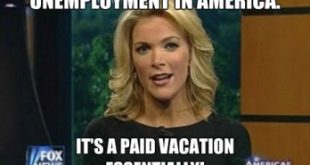Austerity policies — nothing but kindergarten economics [embedded content] I definitely recommend everyone to watch this well-argued interview with Steve Keen. To many conservative and neoliberal politicians and economists there seems to be a spectre haunting the United States and Europe today — Keynesian ideas on governments pursuing policies raising effective demand and supporting employment. And some of the favourite arguments used among these...
Read More »Good reasons to worry about inequalities
Good reasons to worry about inequalities Focussing upon inequality statistics … misses an important point. What matters is not just the level of income inequality, but how that inequality arose. A free market society in which high incomes arise from the free choices of consenting adults – as in Robert Nozick’s Wilt Chamberlain parable – might have the same Gini coefficient as a crony capitalist society. But they are two different things. A good reason to be...
Read More »Lucas-Rapping and ‘New Keynesian’ models of unemployment
Lucas-Rapping and ‘New Keynesian’ models of unemployment Lucas and Rapping (1969) claim that cyclical increases in unemployment occur when workers quit their jobs because wages or salaries fall below expectations … According to this explanation, when wages are unusually low, people become unemployed in order to enjoy free time, substituting leisure for income at a time when they lose the least income … According to the theory, quits into unemployment...
Read More »New Keynesian unemployment — a paid vacation essentially!
New Keynesian unemployment — a paid vacation essentially! Franco Modigliani famously quipped that he did not think that unemployment during the Great Depression should be described, in an economic model, as a “sudden bout of contagious laziness”. Quite. For the past thirty years we have been debating whether to use classical real business cycle models (RBC), or their close cousins, modern New Keynesian (NK) models, to describe recessions. In both of these...
Read More »Economics vs. reality
Denicolò and Zanchettin, in an article published by the prestigious Economic Journal, claim to have shown among other things that “stronger patent protection may reduce innovation and growth.” As a prelude to forty pages of mathematics, they state of their model, “The economy is populated by L identical, infinitely lived, individuals … There is a unique final good in the economy that can be consumed, used to produce intermediate goods, or used in research …” Not only are all...
Read More »Economics — a kind of brain damage …
Economics — a kind of brain damage … [embedded content] (h/t Nanikore)
Read More »Is Paul Romer nothing but a neo-colonial Washington Consensus libertarian?
Is Paul Romer nothing but a neo-colonial Washington Consensus libertarian? On Monday the World Bank made it official that Paul Romer will be the new chief economist. This nomination can be seen as a big step back toward the infamous Washington Consensus, which World Bank and IMF seemed to have left behind. This is true, even though Paul Romer has learned quite well to hide the market fundamentalist and anti-democratic nature of his pet idea – charter cities...
Read More »Economics laws — the ultimate reduction to triviality
Economics laws — the ultimate reduction to triviality What we discover is that the cash value of these laws lies beneath the surface — in the extent to which they approximate the behaviour of real gases or substances, since such substances do not exist in the world … Notice that we are here regarding it as grounds for complaint that such claims are ‘reduced to the status of definitions’ … Their truth is obtained at a price, namely that they cease to tell us...
Read More »Expected utility — a serious case of theory-induced blindness
Expected utility — a serious case of theory-induced blindness Although the expected utility theory is obviously both theoretically and descriptively inadequate, colleagues and microeconomics textbook writers gladly continue to use it, as though its deficiencies were unknown or unheard of. Daniel Kahneman writes — in Thinking, Fast and Slow — that expected utility theory is seriously flawed since it doesn’t take into consideration the basic fact that...
Read More »Cherry picking economic models
Cherry picking economic models Chameleons arise and are often nurtured by the following dynamic. First a bookshelf model is constructed that involves terms and elements that seem to have some relation to the real world and assumptions that are not so unrealistic that they would be dismissed out of hand. The intention of the author, let’s call him or her “Q,” in developing the model may to say something about the real world or the goal may simply be to...
Read More » Heterodox
Heterodox









